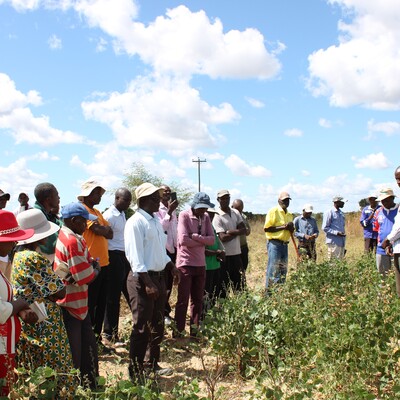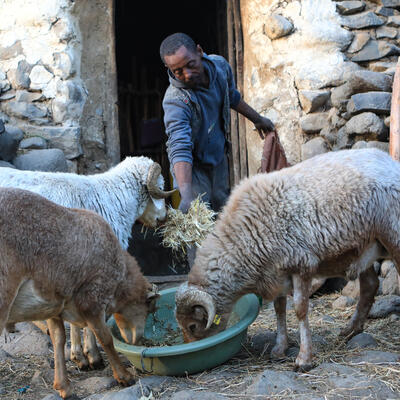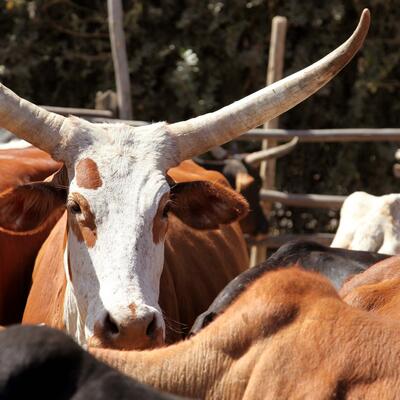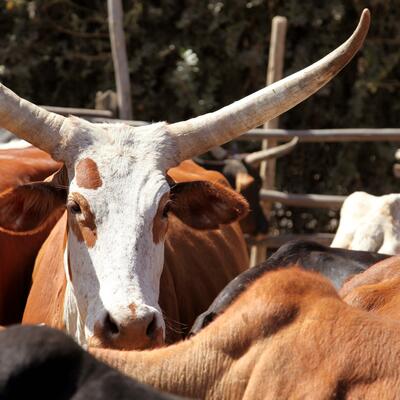
High-quality cassava peel mash technology: Global reach, dissemination, and adoption beyond Africa
Cassava is a staple crop grown in many parts of the world, especially Africa. Unfortunately, the peels produced during processing are frequently thrown away, adding to pollution in the environment. At the same time, quality feed for livestock is in short supply in many regions of Africa. The high-quality cassava peel (HQCP) mash technology tackles the problems of both waste management and feed scarcity by transforming cassava peels into profitable animal feed. Nigeria, and now other African nations have benefited greatly from the use of this breakthrough technology.
Reach and spread in Nigeria
In Nigeria, the International Livestock Research Institute (ILRI) country office has been carrying out intensive training and advocacy efforts which have led to the listing of HQCP mash as a feed ingredient by the Nigerian Institute of Animal Science. Other successes include:
- Training and capacity building: Through workshops and on-site practical training and demonstrations, over 5,000 people including farmers, processors, and extension agents have received training on HQCP mash production practices. Youths were also sponsored on HQCP capacity building under the Youth Entrepreneurship Agribusiness project by Oyo state government.
- Adoption rates: HQCP mash has been adopted by major feed millers and toll millers in Nigeria especially in the southwest region; farmers have benefited from lower expenses and more feed efficiency.
- Geographic spread: There are continuous efforts to expand and intensify the technology's reach to other regions within the country and beyond.
Transfer of technology in Nigeria and other African countries
Interest has increased throughout Africa because of Nigeria's success, with noteworthy developments in several nations. Private companies and government representatives (Botswana, Burundi, Cameroon, Congo, Côte d'Ivoire, Ghana, Liberia, Mali, Rwanda, Senegal, Tonga, Uganda, United Arab Emirates and Vanuatu) have engaged ILRI Nigeria on HQCP technology. Approximately 80% of the inquiries originate from other African countries, while the remainder come from outside. Around 18% of inquiries from within Africa have led to training on the technology.
- ILRI Nigeria has trained over 400 people (25% women and 75% men) on HQCP mash technology: Training involves the HQCP production process, machine maintenance and troubleshooting, factory layout, HQCP use and HQCP business models.
- Regional collaborations: The HQCP mash technology is more scalable thanks to shared knowledge and resources that have resulted from partnerships amongst African countries facilitated by the African Development Bank on the Technologies for African Agricultural Transformation project, for example, training of trainers in Kigali, Rwanda in 2022.
- International exhibitions: Knowledge sharing and cross-border cooperation have been greatly aided by exhibitions, conferences and workshops on livestock production, for example, the Nigeria Poultry and Livestock Expo, the Economic Community of West African States Aviana West Africa International Expo and several feed and dairy summits.
Adoption and evaluation of impact
- Environmental benefits: In adopting regions, the decrease in discarded cassava peel waste has resulted in a notable reduction in environmental pollutants as cassava processors sell their fresh peels to HQCP processors.
- Economic impact: The commercialization of HQCP mash as an animal feed ingredient has resulted in extra income for cassava processors and HQCP mash value chain actors. Establishing cassava peel collection and processing centers in rural communities will create employment opportunities and generate additional income for smallholder farmers, including women and youth.
- Social impact: Many rural community women are involved in cassava production and are benefiting greatly from the technology. Empowering women economically and socially helps reduce gender inequality. As women gain financial independence and respect within their communities, they gain a stronger role in decision-making processes at both household and community levels. HQCP mash technology helps to alleviate poverty among rural households, and leads to improved living standards and economic resilience.
What next?
The HQCP mash technology has been shown to have significant promise in improving the supply of animal feed and managing agricultural waste. Although Nigeria and other African nations have embraced the technology, more work must be done to scale and spread the technology internationally. To guarantee sustainable implementation and maximum impact, this will require focused training, strong collaborations, and supporting policies.
You may also like

ILRI News
ILRI supports Sierra Leone's livestock sector with high-yield forage seeds, boosting food security

ILRI News
The ILRI Forage Genebank celebrates 40th anniversary and the launch of exciting new forage and climate research
Related Publications
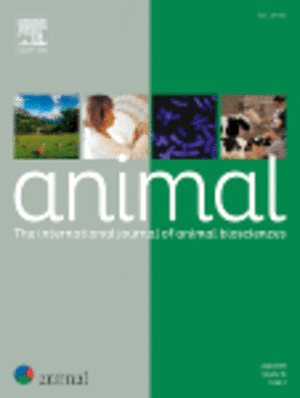
Effect of variation in gridded cattle diet composition on estimated enteric methane emissions in data sparse tropical regions
- Mutua, John Y.
- Duncan, Alan J.
- Robinson, Timothy P.
- Fraval, Simon
- Notenbaert, An Maria Omer
- Watmough, Gary R.

Effect of plant-derived feed additives on enteric methane emission, nutrient digestibility and immune status of adult male goats
- Kumari, N.
- Kala, A.
- Agarwal, N.
- Chaturvedi, V.B.
- Kennady, Vijayalakshmy
- Chaudhary, L.C.
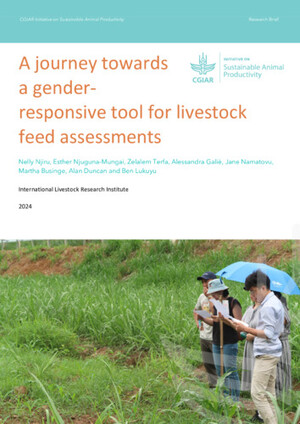
A journey towards a gender-responsive tool for livestock feed assessments
- Njiru, Nelly
- Njuguna-Mungai, Esther
- Terfa, Zelalem
- Galiè, Alessandra
- Namatovu, Jane
- Businge, Martha
- Duncan, Alan J.
- Lukuyu, Ben A.
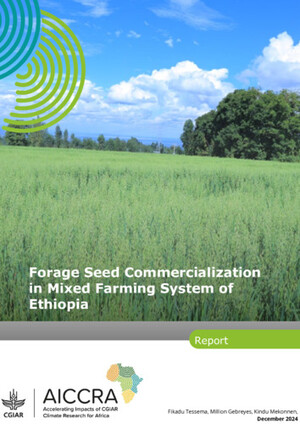
Forage Seed Commercialization in Mixed Farming System of Ethiopia
- Tessema, Fikadu
- Gebreyes, Million
- Mekonnen, Kindu





